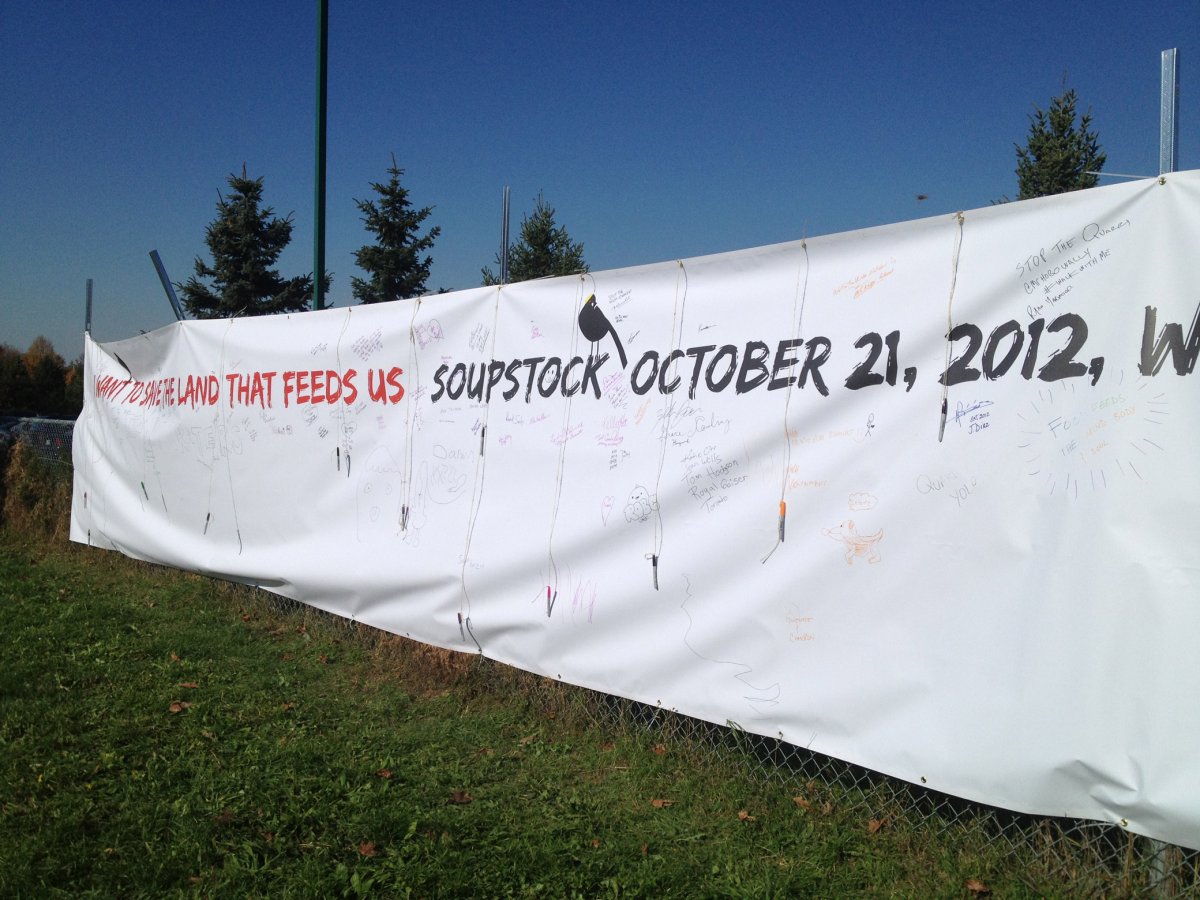TORONTO – A proposed mega-quarry planned for north of Toronto is no more.

On Wednesday, Highland Companies announced is is withdrawing its application to develop a quarry in Melancthon Township.
“While we believe that the quarry would have brought significant economic benefit to Melancthon Township and served Ontario’s well-documented need for aggregate, we acknowledge that the application does not have sufficient support from the community and government to justify proceeding with the approval process,” said John Scherer of The Highland Companies in a press release.
Highland Companies also announced John Lowndes has resigned as company president.
The proposal, first made public in 2009, has drawn much protest from local residents and environmental organizations warning the quarry would devastate the local ecosystem.
Last month, over 40,000 people attended Soupstock at Toronto’s Woodbine Park to protest the quarry proposal.
“This is really evidence that people power works,” said Dr. Faisal Moola, director general at the David Suzuki Foundation for Ontario and Northern Canada.
Moola credits the dedication and tenacity of local organizations and residents for the proposal withdrawal.
He added that moving forward the focus must now be on working with the Ontario government to protect the land from future development and overhaul aggregate legislation in the province, so no communities have to face a battle like the one in Melancthon Township.
Sylvia Jones, MPP for Dufferin-Caledon, echoed Moola’s sentiment. “There is a lesson to be learned here,” she said. “Local residents, community groups and municipal councils can make a difference.”

Get daily National news
MEGA-QUARRY
In 2006, Lowndes purchased almost 3,250 hectares of land for Highland Companies, telling local farmers of his plan to start a large co-operative potato farm. Local residents eventually grew suspicious of Highland’s plan for the land.
In 2009, Highland Companies, which is backed by $25-billion Boston hedge fund Baupost Group, held a public meeting where it laid out the company’s proposal for digging a mega-quarry.
The proposed quarry site falls within the region known as Hills of Headwaters. It is currently home to some of Canada’s richest soil. The countryside attracts hundreds of tourists and cottagers every year.
The quarry would stretch over 930 hectares in Melancthon Township. The quarry would be deeper than Niagara Falls, plunging
down more than 60 metres. Because the quarry would fall below the water table, 600 million litres of water would be pumped out of the quarry every day, and thousands of 40-tonne trucks would travel on local roads every day, 24 hours a day.
“This quarry plan is unprecedented in our county,” said Moola.
“These watersheds are literally ensuring the health of our communities,” said Moola, adding while there’s no one right way to value our ecosystems, ” …there is a wrong way, and that’s to not value it at all.”
In September 2011, after numerous protests and petitions, Ontario’s Minister of the Environment John Wilkinson ordered Highland Companies to undertake a comprehensive environmental assessment of the quarry proposal.
Thousands of letters of objection had been sent to Linda Jeffrey, the province’s Minister of Natural Resources, questioning the science of Highland’s initial application.
The province was awaiting notification from Highland Companies whether they will participate in the environmental assessment or abandon the project.
SOUPSTOCK
In 2011, 28,000 people attended Foodstock on a potato farm across the road from the proposed quarry site.
This year, critics of the mega-quarry brought their fight to Toronto, boosting attendance to over 40,000 people.
“It’s so important that we secure where our food comes from,” said Chef Stadtländer from the Canadian Chefs’ Congress.
Speaking at an event earlier this month, Stadtländer highlighted the impact this region has on what ends up on Ontarians’ dinner table.
“This land produces 20 pounds of potatoes for every citizen in Toronto,” he said. “And it’s only 100 km away.”
“People drive by this farmland in their BMWs and think it’s just land,” said Stadtländer. “We need to connect people to their food.”
View Soupstock 2012 in a larger map
Follow Heather on Twitter @heatherloney








Comments